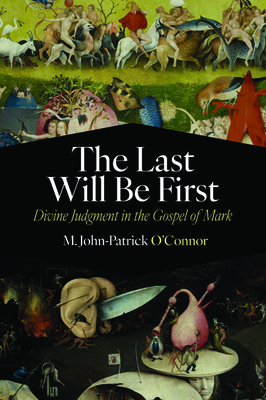
O'Connor, M. John-Patrick
Rather than continue to neglect the theme of God's judgment for a modern world, M. John-Patrick O'Connor suggests that Christian communities ought to improve upon their "grammar of judgment" by judiciously evaluating the "who," the "what," and the "why" of God's judgment and by considering the historic use and abuse of such language. O'Connor's journey toward better theologies of judgment begins with the Gospel of Mark. While readers of Scripture most frequently associate divine judgment in the New Testament with Matthew, Luke, or Paul, The Last Will Be First claims that Mark's Gospel offers an equally robust vision of God's judgment upon evil and, crucially, God's justice for the "least of these."
After cataloging the range of divine judgment language in the Hebrew Bible and Second Temple Judaism, O'Connor turns to the second Gospel, proposing that God's judgment as portrayed in Mark is for the purpose of defending God's children. O'Connor demonstrates that Mark participates in a well-established "grammar of judgment" that can be dispensed in a variety of contexts while retaining God's role as the primary agent of judgment. To that end, this book also hopes to build a constructive theology of judgment for readers of Mark, with a hopeful vision for the gospel's ongoing relevance in a world still marked by oppression.







